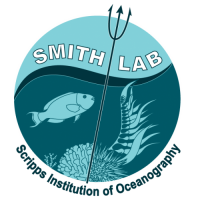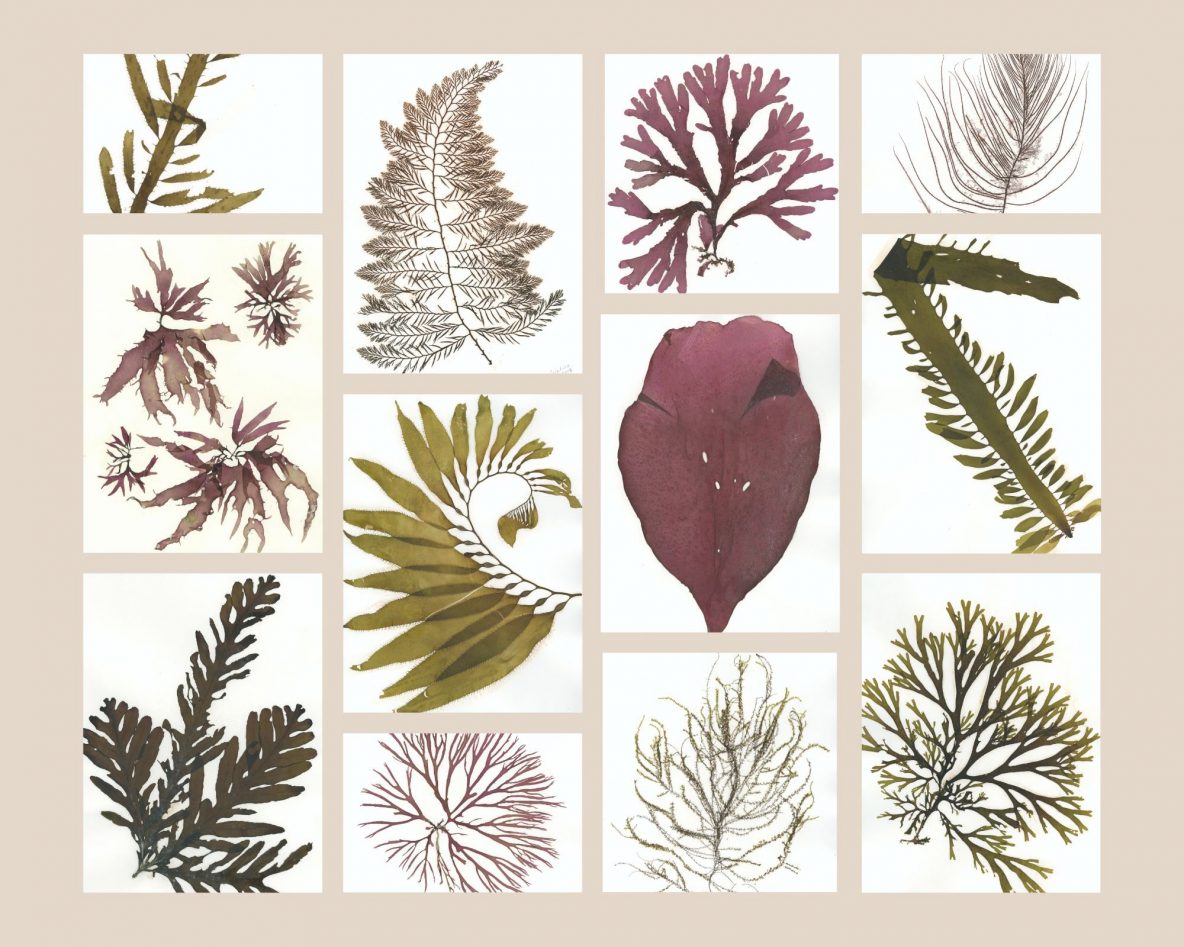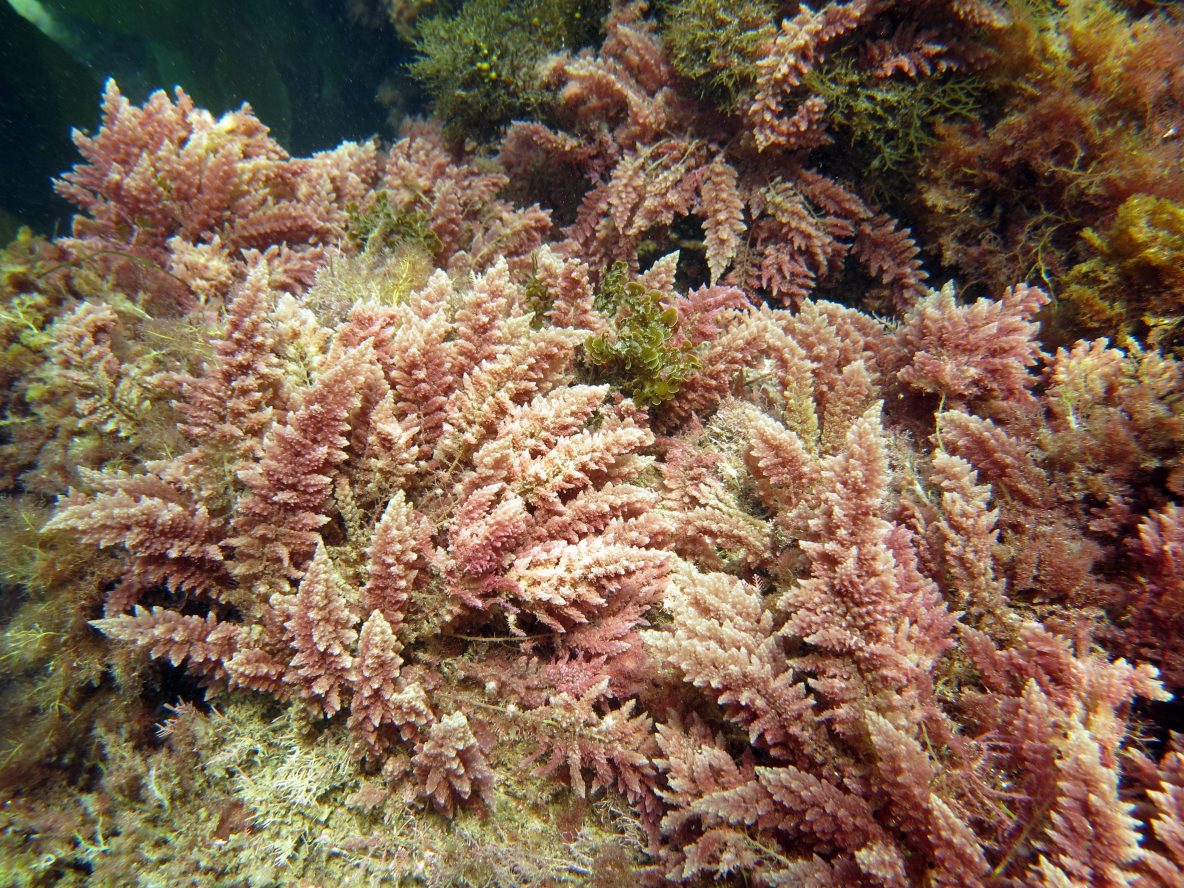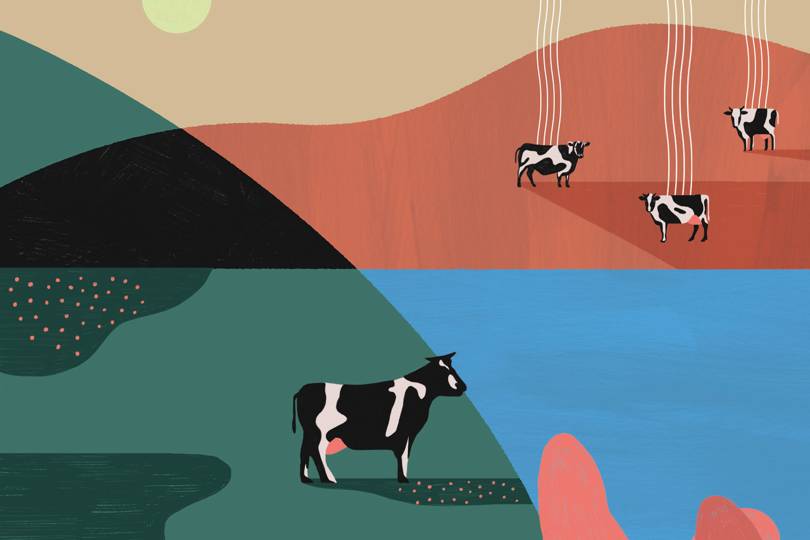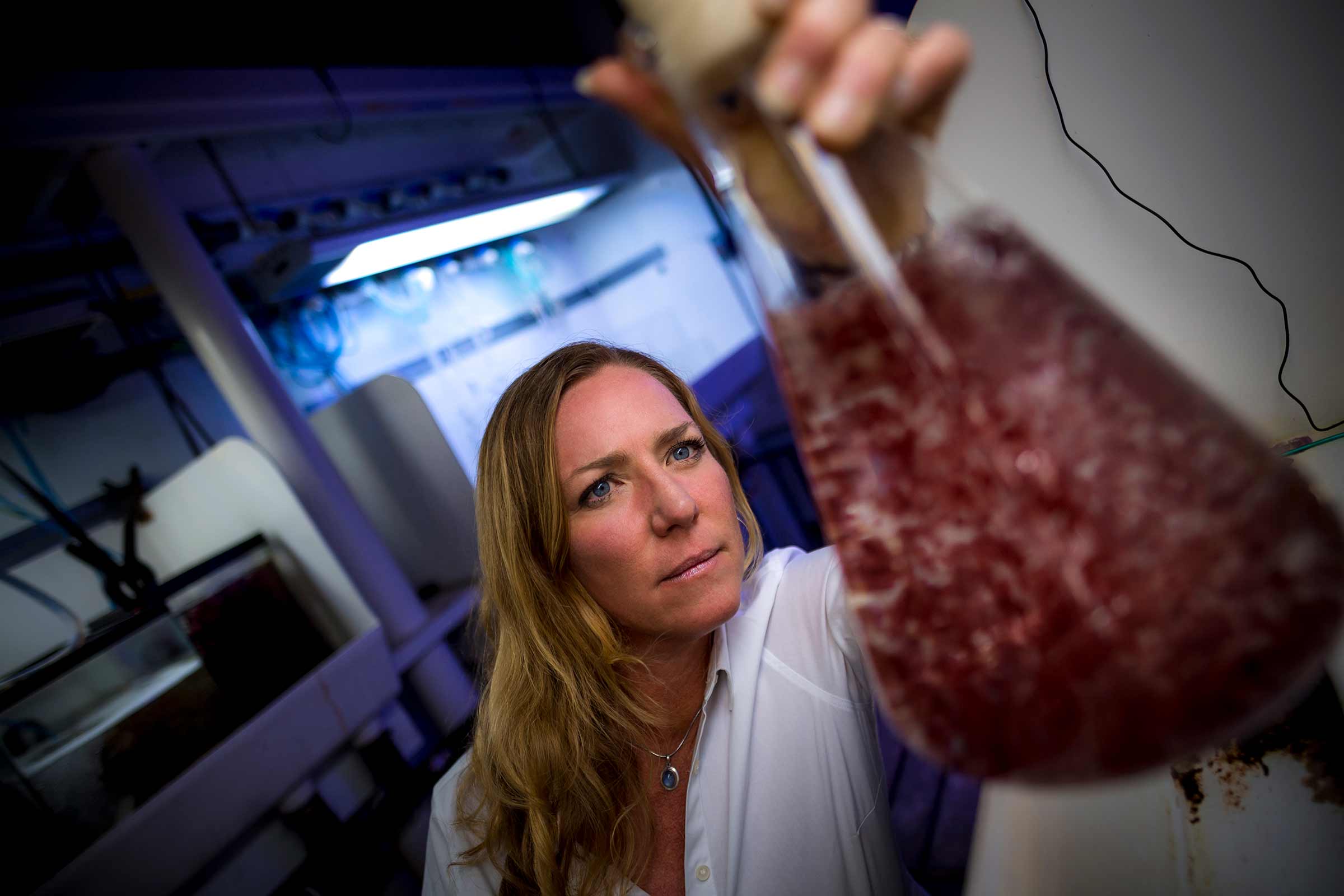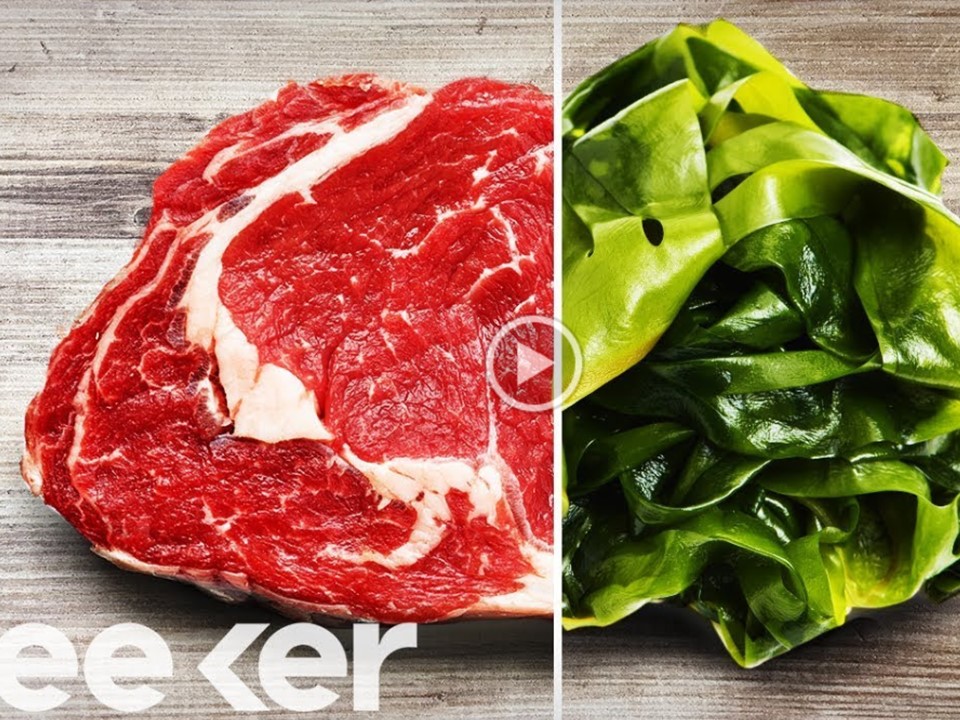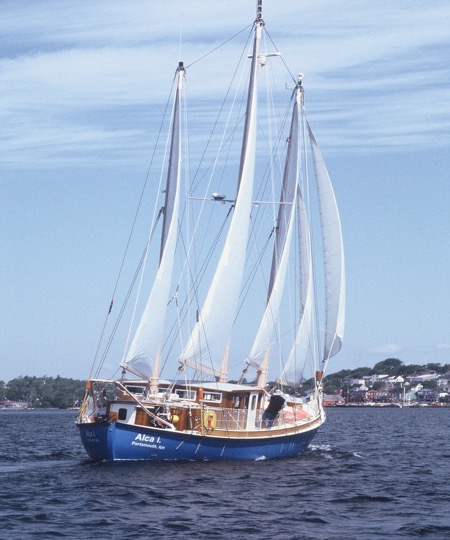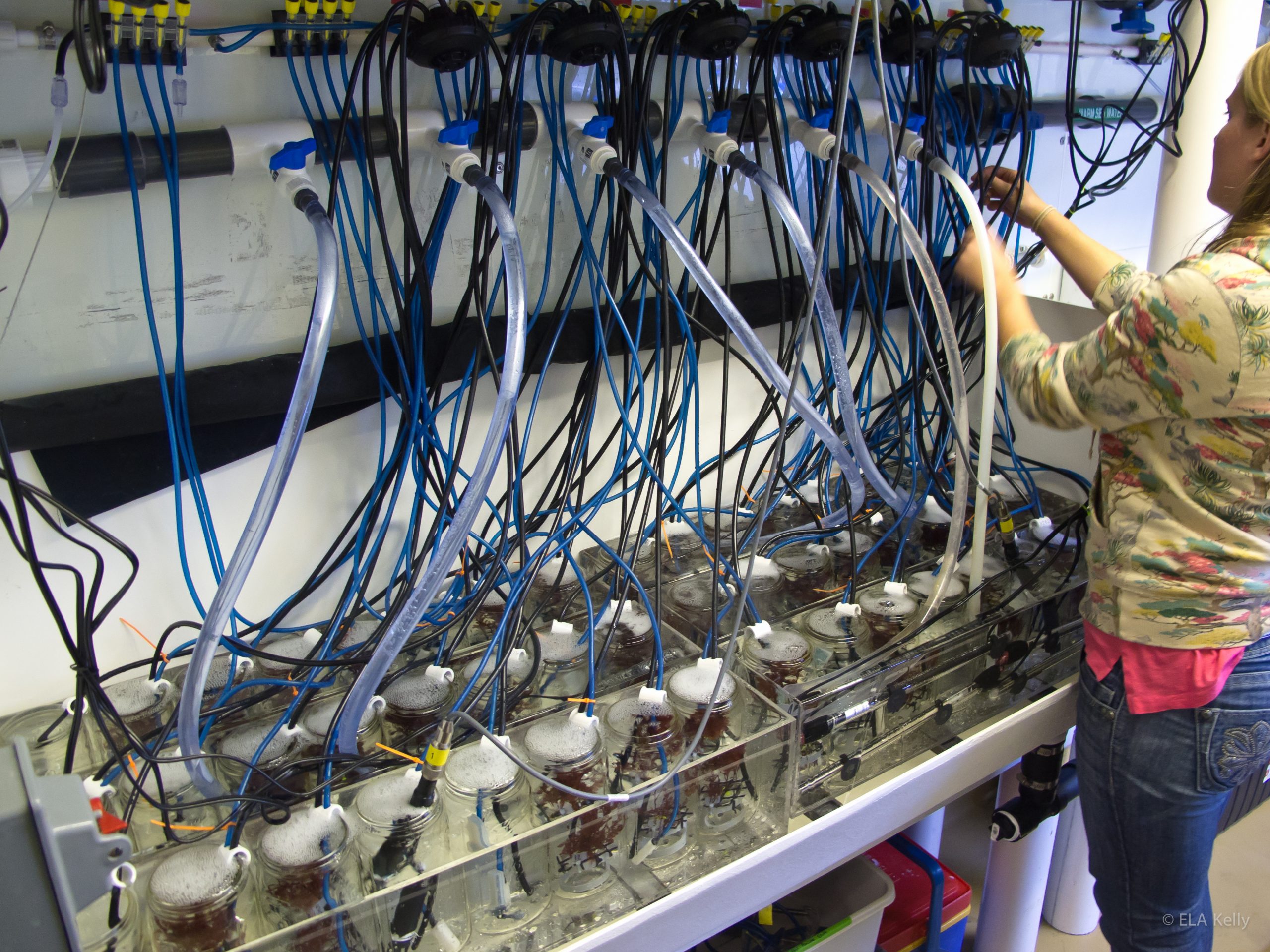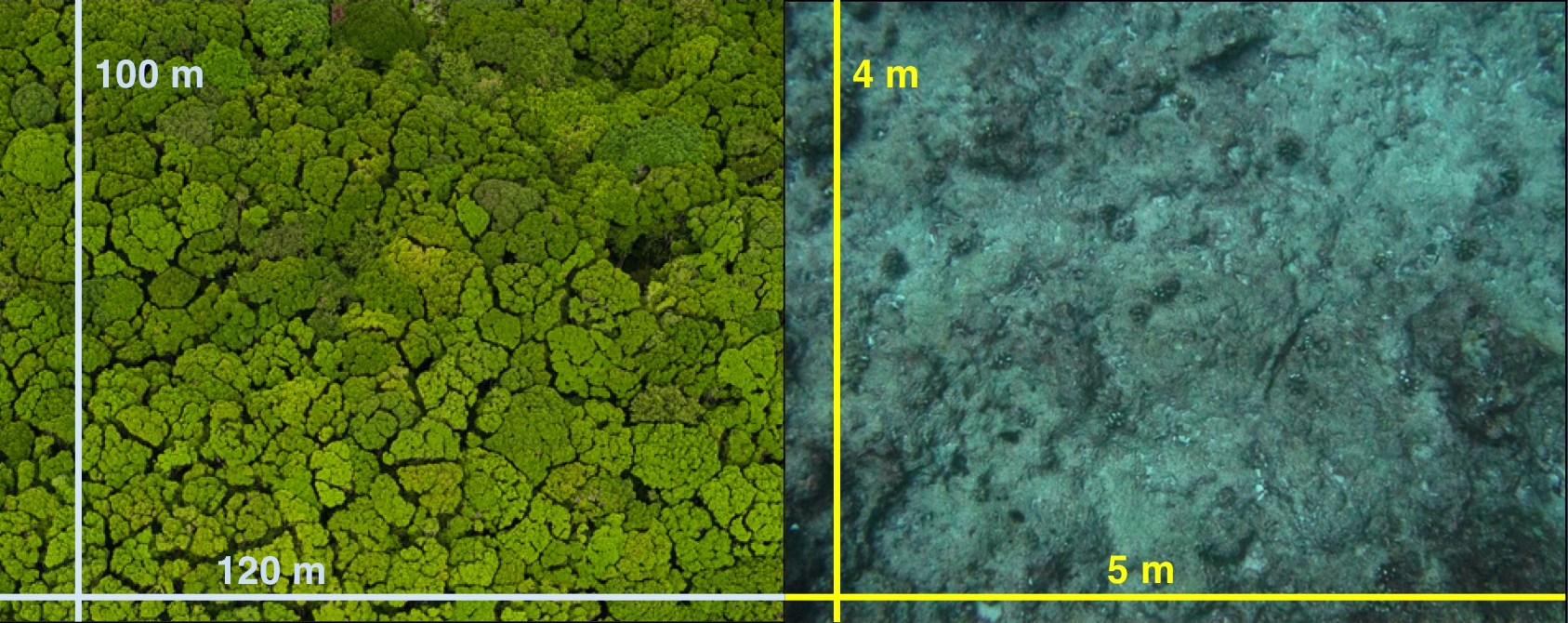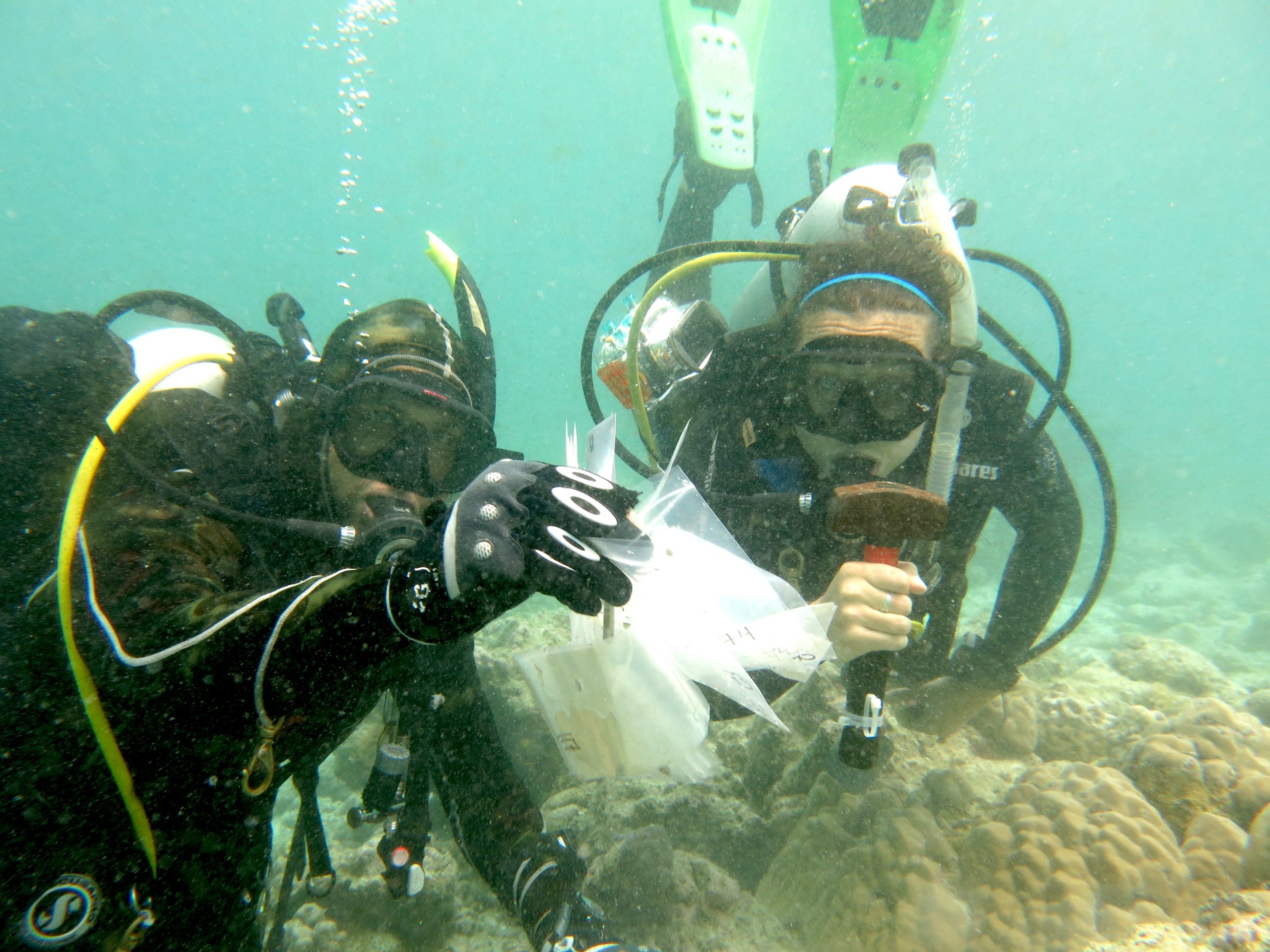One of our talented volunteers, Nicole Lopez (mentored by Dr. Adi Khen), put together this film about the Smith Lab’s efforts to re-establish an herbarium collection at Scripps Oceanography. “Underwater Gardens” is a short exploration of the often overlooked but beautiful world of seaweeds, and the unexpected ways they intersect with art, science, and climate solutions: Stay tuned for future … Read More
Can Seaweed Save the Planet?
Dr. Jennifer Smith was featured in the Wavelengths series’ latest video! A species of seaweed is behind a major movement to curb methane emissions from an unlikely source—cow burps. Marine ecologist Jennifer Smith leads the Smith Lab at Scripps Oceanography where she cultivates Asparagopsis taxiformis, a species of red algae that produces a compound that could greatly reduce the production … Read More
Postdoc Job Announcement
JOB ANNOUNCEMENT ALERT! POSTDOCTORAL RESEARCH POSITION AT SCRIPPS INSTITUTION OF OCEANOGRAPHY, UCSD – BIOLOGY SECTION Scripps Institution of Oceanography (SIO, http://scripps.ucsd.edu) at the University of California San Diego (UCSD) invites applications for a full-time Postdoctoral Researcher to work with an interdisciplinary research team focused on the topic of Kelp Forest Ecology, Ecophysiology, Carbon Cycling and Sequestration Potential. The incumbent will … Read More
Cow burps & the scientists waging war against them, featured in WIRED
Dr. Jen Smith was recently interviewed and featured in a WIRED article where she discussed how her work learning to cultivate Asparagopsis taxiformis in the lab will help Californian dairy farmers to cut emissions by 2030. The article mentions her work with Elm Innovations and introduces a multitude of scientific methods currently being explored by scientists worldwide to reduce methane emissions by the livestock … Read More
UCSD Research highlight: “Usurp the Burp”
This week Dr. Jen Smith’s research was featured by the UC San Diego News Center, highlighting her recent collaboration with agricultural scientists at UC Davis. Dr. Smith is researching methods of cultivation of Asparagopsis taxiformis, a red seaweed that has been discovered to reduce methane emissions from cow burps in studies conducted at UC Davis. She’s also working with scientists at … Read More
Can algae be the secret to reducing one of the largest sources of greenhouse gas emissions worldwide?? Sneak a peek into the Smith Lab’s latest research collaboration!
Check out the latest in research aimed to reduce greenhouse gas emissions from cattle! Seeker interviewed scientists at UC Davis as well as our very own Dr. Jen Smith at SIO. Take a look at the video below to see what all the hype is about!
Citizen-supported science in the Gulf of Maine
Dr. Walter Adey has dedicated his career to studying the importance of seaweeds in the marine ecosystems of the Northwest Atlantic. Walter first surveyed the benthic communities of the Gulf of Maine fifty years ago. In the wake of the collapse of the famed New England cod fishery and half a century of climate change, the Gulf of Maine is … Read More
Published Results: Effects of ocean acidification on San Diego seaweeds
A new paper, written by Susan Kram and co-authors, was recently accepted for publication in the ICES Journal of Marine Science themed article set on Ocean Acidification. The paper, “Variable responses of temperate calcified and fleshy macroalgae to elevated pCO2 and warming,” describes the responses of six different locally abundant San Diego seaweeds to future ocean acidification and warming conditions. … Read More
Published Results – new paper focuses on the small things on a coral reef
Jill’s new paper, written with Jen and Levi, came out recently in the Marine Ecology Progress Series. Their paper, Quantifying scales of spatial variability in algal turf assemblages on coral reefs, describes how turf algae on a coral reef are variable over very small scales. Turf algae are a group of small (~ 1 cm tall) algae that grow like a fuzzy … Read More
New paper focuses on the small things on a coral reef
By Jill Harris Jill’s new paper, written with Jen and Levi, was recently accepted for publication in the Marine Ecology Progress Series. Their paper, Quantifying scales of spatial variability in algal turf assemblages on coral reefs, describes how turf algae on a coral reef are variable over very small scales. Stay tuned for the official publication of the paper, but in the … Read More
- Page 1 of 2
- 1
- 2

